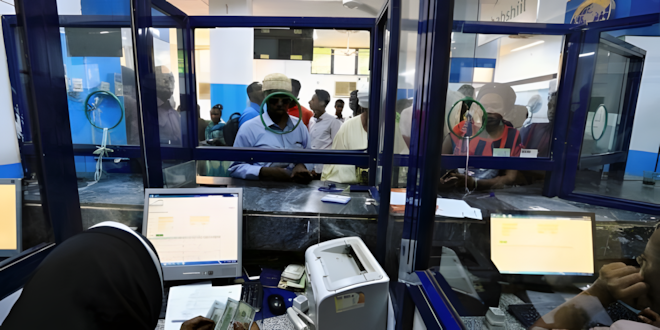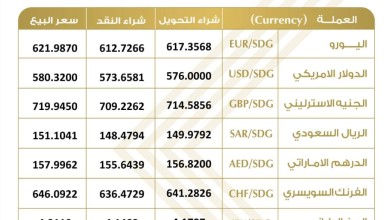The Sudanese pound continues its decline as the war continues

Foreign currency prices resumed their upward trend at the end of trading today, as the Sudanese Pound (SDG) continued its decline in value. The dollar exchange rate on the parallel market rose to achieve a value between (2,780) and (2,775) pounds.
Whilst the Saudi riyal rose to achieve a value of (740) pounds in exchange, the UAE dirham reached (755) pounds, and the Egyptian pound rose to (54) pounds. The euro exchange rate against the Sudanese pound, however, seemed to be in a decline, falling to (3,118) sdg, similarly, the British pound fell to (3,700) sdg.
A trader operating in the parallel market confirmed that foreign currency exchange rates are constantly changing and fluctuating, in addition, the prices vary from one trader to another and from one state to another. As the densely populated states are experiencing increased demand and higher prices in an effort to cover government expenses, imports, and Hajj season requirements.
He added that there are major currency traders who secure government agencies’ foreign currency demands and imports, effectively controlling the exchange rate. Therefore, they raised the prices due to the increased demand witnessed in the markets since the beginning of this month. However, the aforementioned scenario is one they are adapt at performing, whenever there is increased demand for foreign currency.
For their part, banking experts believe that citizens are suffering from increasing economic pressures due to the rising cost of living.
With the decline in the value of the Sudanese pound, many are facing difficulty meeting their daily needs because the price disparity reflects the instability in the currency market and further complicates the country’s economic situation.
They shared that the continued erosion and deterioration of the Sudanese Pound’s value compound with its declining purchasing power are exacerbating the economic situation. The ongoing war between the Sudanese Armed Forces (SAF) and the Rapid Support Forces (RSF) has led to a decline in the value of the national currency due to the ongoing economic pressures, exacerbating the financial burdens on citizens who’re required to pay significantly high costs for basic goods and services.





